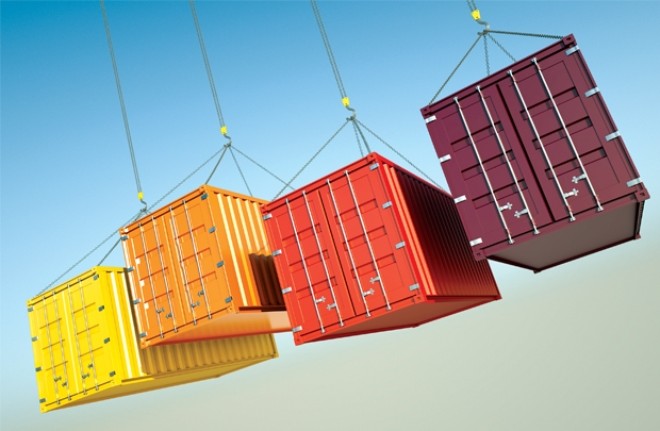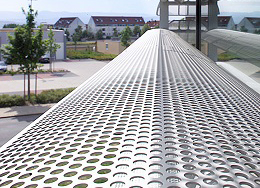
Thống kê
| 1882719 | |
| Số người đang online | 1 |
| Số truy cập hôm nay | 130 |
| Số truy cập tháng này | 57860 |
Quảng cáo
The impact of TPP seen from chapter Management Facilitation customs and trade

|
The customs duties specified in the Customs program of the TPP if taken seriously will vigorously promote the flow of trade between Member States, and the beneficiaries will include both businesses and workers, farmer...
One of the strongest criticisms of that TPP TPP is designed to benefit multinational companies large and harmful to workers, consumers, the environment and small and medium enterprises. TPP negotiation process takes place behind closed doors with the content of negotiations is prepared by (or consultation with) the multinational corporation which was not published until the TPP is completed.
However, program management and Facilitation customs trade (in this article referred to as the Customs chapter) shows that in fact, if we look from the perspective of supporting multilateral trade flow, TPP will be helpful more for small and medium businesses, including merchants, in the Member States, thereby contributing to creating more jobs and improve the prosperity for member states.
With small and medium enterprises in general, implementation of procedures and customs procedures is always a nightmare. Due to limited financial capacity and scope, they do not have the specialized staff are experts in customs should always be groping between forest types of procedures and requirements with countless costs and damages both named and unnamed incurred. So if the processes and customs procedures are simplified, fast, convenient, transparent and consistent with trade partner countries ... the goods traded from the place of production will be fast circulation to the consumer market with the fastest time and lowest cost. However, procedures and customs procedures agreed between the partner countries will also help to manage more favorable customs while ensuring good national security and public safety.
Recognizing that transparency and understandability of customs procedures is fundamental to international trade development should effectively first clause which Member States TPP agreement is in Chapter Customs regulations on Member States to ensure that their customs procedures are transparent, consistent and predictable.
In this direction, the Member States must publish the regulations, rules and customs procedures on the network, and by catieng English if possible for anyone to have access to these documents easily . They will also have to disclose contacts to be ready to answer concerns of the business community.
The Member States agreed in chapters on mitigation Customs clearance time, and to the extent possible, within 48 hours after the goods required clearances to gate. To avoid delay, delay ... by customs officials have not decided the level of taxes and fees to pay, this program allows customs clearance of goods based on the deposit and / or tax prepayment as customs requirements (and then allowed to ask the competent authorities of the importing country to reconsider this rate).
To reduce uncertainties related to the clearance of goods to the merchant, the customs regulations chapters importing countries, if requested by merchants, provide information before merchants transporting goods to the importer import code, types of merchant goods, and whether their goods meet the conditions to enjoy preferential tax TPP or not. The provision of this information must be completed within 150 days after receiving the request, and the information provided must be valid application within 3 years.
Recognizing the importance of delivery time to enhance the competitiveness of products and enterprises, customs regulations chapters importing countries to quickly and timely clearance of goods by reducing courier and simplified customs clearance procedures. For courier diverse values, shapes and sizes so the member countries agreed to eliminate all existing restrictions on the weight and value of the customs clearance for import delivery nor nhanh.Nuoc charged extra for express delivery of goods valued at less than the minimum prescribed to accelerate clearance and reduce the procedures.
On the sanctioned customs, Customs program provides for the punishment must forecast and not excessive level (kick right persons (degree) violation, the fine amount shall be calculated on the basis of no conflicts of interest in fixing fines and penalty charges, fines should take into account the degree of self-discipline, sincere from violation before violations uncovered ...). We can see the reasons rules on customs penalties as this is a new point of TPP compared with the free trade agreements in force. Thus, the merchant is not sanctioned unjust, unjust and excessive.
In addition, the Customs program also mentions the coordination, customs assistance between countries as suppliers, share information when investigating the legal action, to ensure effective customs operations, not to the benefit of TPP benefit unjustly by an external entity that block.
In summary, the customs duty specified in the Customs program of TPP if taken seriously will vigorously promote the flow of trade between Member States, and the beneficiaries will include both medium-sized enterprises and small and workers, peasants do when their products will be sold in the market more than imported in volumes.
TS. Phan Minh Ngoc
According to Young Intellectuals
|
Liên kết website
Hỗ trợ trực tuyến
-
 Liên hệ ngay.Email:ĐT: (08) 6682 3335 - Fax: (08) 6256 2218
Liên hệ ngay.Email:ĐT: (08) 6682 3335 - Fax: (08) 6256 2218
Ngày giờ hiện tại
13/9/2025
clock




